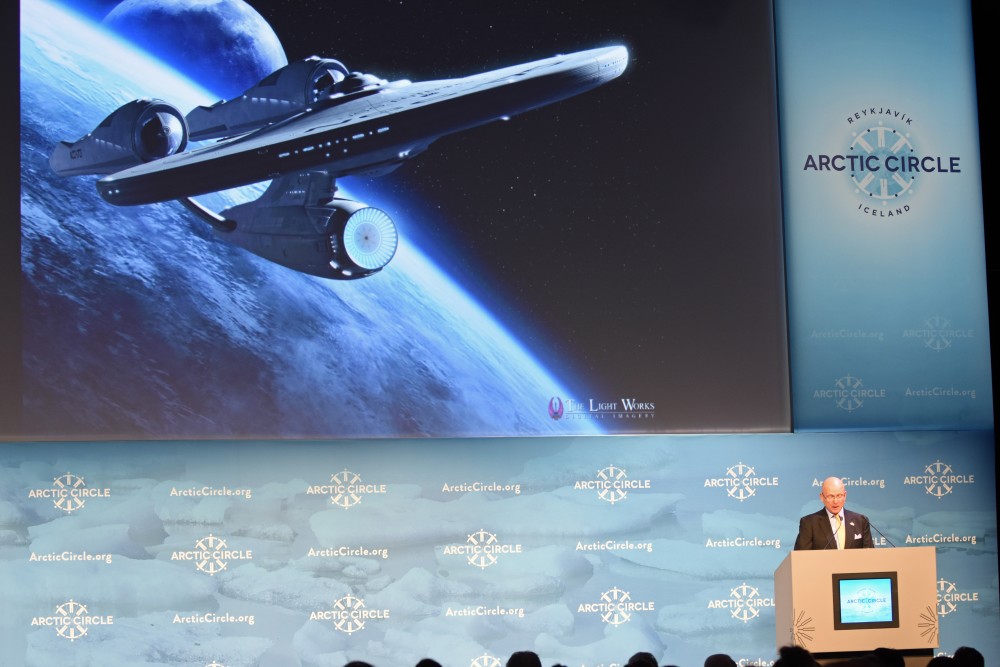Invoking Star Trek, U.S. official calls for shared icebreaker operations

Arctic Circle Assembly kicked off in Reykjavik on Friday with 2,000 participants; the gathering is by far the largest international platform with a focus on the north.
The assembly features speeches from a high-profile list of officials, including the foreign ministers of Finland and Iceland, Timo Soini and Lilja Aldredsdóttir, respectively.
Climate change, Arctic research and joint efforts to share infrastructure operations in the Arctic led discussions Friday. Retired U.S. Coast Guard Admiral Papp, the U.S. State Department’s Special Representative for the Arctic, pointed to the Star Trek movies when calling for the need for all Arctic nations to work together to overcome the challenges in the high north.
“What if we could utilize a joint fleet of icebreakers for common operations in the Arctic,” Papp suggested, while pointing to a huge Star Trek spaceship on the screen.
In the United States, the icebreaker issue is debated among lawmakers and stakeholders. The U.S. Coast Guard’s icebreakers are aging and will soon need to be replaced.
A law dating back to the 1920s, however, requires that any ships sailing with cargo or people between two U.S. ports must be built in the United States. That would be far more expensive compared with buying a state-of-the-art icebreaker from, for example, a Finnish shipyard.
Today, Russia has the world’s largest and most powerful fleet of icebreakers including both nuclear powered and diesel-electric ones.
Head of Norway’s Polar Institute, Jan-Gunnar Winther, also present in Reykjavik, told the Barents Observer that Papp’s suggestion should be followed up.
“Logistic operations in the Arctic are very expensive so we more than welcome initiatives to share icebreakers and other infrastructure,” says Jan-Gunnar Winther.
He says that science communities are indeed cooperating well while working both in the Arctic and Antarctic, but there are still many infrastructure operations that could be more effective if different countries coordinated work more.
More than 400 speakers will address different aspects of Arctic cooperation in the plenary and breakout sessions to take place in Reykjavik over the weekend.
On Saturday, Secretary-General of the United Nations Ban Ki-Moon will meet the participants, and discuss follow-up efforts to implement the Paris Climate Agreement.